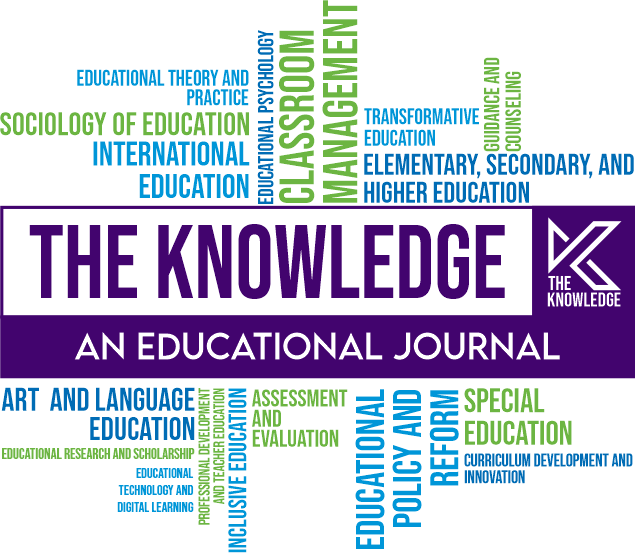An Analysis of Students' Academic Performance at the University Level
DOI:
https://doi.org/10.55737/tk/2k25a.41068Keywords:
Academic Performance, Planning, Time Management, Communication, Learning Skills, Study Skills, Self-efficacy, Cognitive StrategiesAbstract
This study aimed to take a good look at how university students are performing academically. It was a descriptive study, and it involved a survey across two universities: Mirpur University of Sciences and Technology (MUST) and the University of Kotli, Azad Jammu and Kashmir (UoKAJK). The total number of students involved was 2,920 in all, with 1,660 from MUST and 1,260 from UoKAJK. To get a manageable sample, the researchers used a technique called stratified random sampling. This meant they ended up with 600 students total—341 from MUST and 259 from UoKAJK. They developed their own questionnaire for this research. For analysing the data, they went with frequency, percentages, means, and standard deviations. The results showed that university students did demonstrate some level of academic performance. However, it seems they only partially agreed with how well they were doing academically. Based on all this, the study suggests a few things. For one, students might want to work on their daily planning and really hone in on their time management skills, learning techniques, and study strategies to improve their performance. The university teachers may encourage students to set some weekly goals, keep track of their daily tasks, and maybe spread out their study time across different subjects. That may really help them stay organized and on top of things.
References
Atkinson, C., Barrow, J., & Norris, S. (2022). Assessment practices of educational psychologists and other educational professionals. Educational Psychology in Practice, 38(4), 347–363. https://doi.org/10.1080/02667363.2022.2109005
Baron, E. J. (2019, January). School Spending and Student Outcomes. In Proceedings. Annual Conference on Taxation and Minutes of the Annual Meeting of the National Tax Association (Vol. 112, pp. 1-64). National Tax Association. https://www.jstor.org/stable/27067476
Chernyshenko, O. S., Kankaraš, M., & Drasgow, F. (2018). Social and emotional skills for student success and well-being: Conceptual framework for the OECD study on social and emotional skills, OECD Education Working Papers 173. OECD Publishing.
Closson, L. M., & Bond, T. A. (2019). Social network site use and university adjustment. Educational Psychology, 39(8), 1027–1046. https://doi.org/10.1080/01443410.2019.1618443
Colmar, S., Liem, G. A. D, Connor, J., & Martin, A. J. (2019). Exploring the relationships between academic buoyancy, academic self-concept, and academic performance: a study of mathematics and reading among primary school students. Educational Psychology, 39(8), 1068-1089. https://doi.org/10.1080/01443410.2019.1617409
Eakman, A. M., Kinney, A. R., Schierl, M. L., & Henry, K. L. (2019). Academic performance in student service members/veterans: Effects of instructor autonomy support, academic self-efficacy and academic problems. Educational Psychology, 39(8), 1005–1026. https://doi.org/10.1080/01443410.2019.1605048
Garton, L. E., Hatch, T. A., & Briggs, J. L. (2000). Academic performance and persistence among first-year students: The role of learning styles. Journal of Higher Education, 71(3), 254-278.
Ghalem, Â., Chafik, O., Chroqui, R., & El Alami, S. (2016). Performance: A concept to define. Unpublished. https://doi.org/10.13140/RG.2.2.24800.28165
Hijazi, S. T., & Naqvi, S. M. M. R. (2006). Factor affecting students’ performance: A case of private colleges. Bangladesh e-journal of Sociology, 3(1).
Kell, H. J., Lubinski, D., & Benbow, C. P. (2013). Who rises to the top? Early indicators. Psychological Science, 24(5), 648–659. https://doi.org/10.1177/0956797612457784
Kim, S., Cho, H., & Kim, L. Y. (2019). Socioeconomic Status and Academic Outcomes in Developing Countries: A Meta-Analysis. Review of Educational Research, 89, 875-916.
https://doi.org/10.3102/0034654319877155
Marantika, J. E. R. (2022). The relationship between learning styles, gender and learning outcomes. Cypriot Journal of Educational Science. 17(1), 56-67. https://doi.org/10.18844/cjes.v17i1.6681
Martinez, I., Youssef-Morgan, C., Chambel, M., & Marques-Pinto, A. (2019). Antecedents of academic perform ance of university students: Academic engagement and psychological capital resources. Educational Psychology, 39(8), 1047–1067. https://doi.org/10.1080/01443410.2019.1623382
McKenzie, K., & Schweitzer, R. (2001). Who Succeeds at University? Factors predicting academic performance in first year Australian university students. Higher Education Research & Development, 20(1), 21–33. https://doi.org/10.1080/07924360120043621
Mihaela, P. L. (2015). Psychological factors of academic success. Procedia-Social and Behavioral Sciences, 180, 1632-1637.
Moore, P. J. (2019). Academic achievement. Educational Psychology, 39(8), 981–983. https://doi.org/10.1080/01443410.2019.1643971
OECD (2019). PISA 2018 assessment and analytical framework. Paris: OECD Publishing.
Pike, G. R., & Kuh, G. D. (2005). First- and Second-Generation College Students: A Comparison of Their Engagement and Intellectual Development. The Journal of Higher Education, 76(3), 276–300. https://doi.org/10.1080/00221546.2005.11772283
Ryan, R. M., & Deci, E. L. (2000). Self-determination theory and the facilitation of intrinsic motivation, social development, and well-being. American Psychologist, 55(1), 68–78. https://doi.org/10.1037/0003-066X.55.1.68
Zhang, W., Zeng, X., Liang, H., Xue, Y., & Cao, X. (2023). Understanding How Organizational Culture Affects Innovation Performance: A Management Context Perspective. Sustainability (Switzerland), 15(8). https://doi.org/10.3390/su15086644
Downloads
Published
Issue
Section
License
Copyright (c) 2025 Copyright in the THE KNOWLEDGE is retained by the author(s). Authors also grant any third party the right to use the article freely as long as its integrity is maintained and its original authors, citation details and publisher are identified.
This work is licensed under a Creative Commons Attribution-NonCommercial 4.0 International License.







